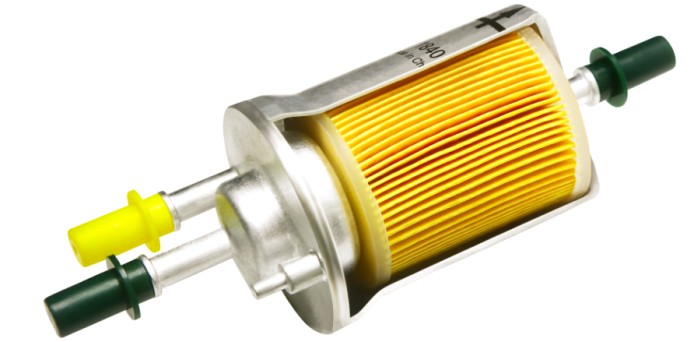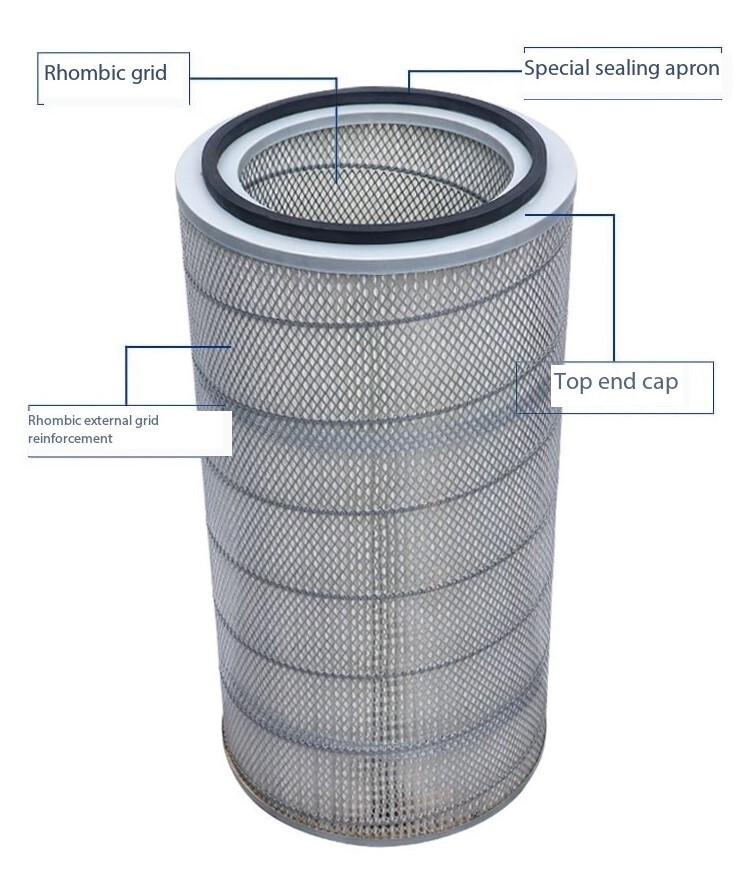NEWS & BLOGS

The fuel filter is the core part of the automobile fuel system. Its function is to filter impurities and water in the fuel, protect key components such as the fuel injector, cylinder liner, piston ring, etc., and prevent them from being worn or otherwise damaged by impurities. This ensures the stable and efficient operation of the engine. So, is there a connection between the fuel filter and fuel consumption? The answer is yes.
Fuel filters are essential components in a vehicle's fuel system, playing a critical role in maintaining engine performance and efficiency. Their primary function is to remove impurities, contaminants, and debris from the fuel before it reaches the engine. While this may seem like a straightforward task, the condition of the fuel filter can significantly impact fuel consumption, engine performance, and overall vehicle reliability. Understanding the functions of a fuel filter, its effect on fuel consumption, and how to maintain it can help drivers ensure optimal vehicle performance.
When the fuel filter is not replaced for a long time, the filter element will gradually accumulate impurities, resulting in a decrease in the filtering effect and a decrease in oil pressure. This will cause insufficient atomization of the fuel and uneven mixing with the air, which will lead to incomplete combustion of the fuel. In order to compensate for this defect, the engine control unit will increase the amount of fuel injection, thereby increasing fuel consumption.

Affect Fuel Consumption
The quality of the filter paper is crucial in the internal structure of the fuel filter. The filter paper not only determines the filtering effect of the filter but also directly affects the fuel consumption. When the fuel flows in from the fuel inlet, it flows out from the fuel outlet after being finely filtered by the filter paper. If the filter paper is of poor quality, the impurities in the fuel may not be completely filtered, which will affect the engine performance and ultimately increase fuel consumption.
1, Clogging and Reduced Flow: Over time, fuel filters can become clogged with contaminants, which restricts the flow of fuel to the engine. When this happens, the engine may struggle to receive adequate fuel, leading to poor performance and reduced efficiency. As a result, the engine may consume more fuel to maintain power, increasing overall fuel consumption.
2, Increased Engine Strain: A clogged fuel filter can cause the engine to work harder than necessary to draw fuel. This increased strain not only affects fuel consumption but can also lead to premature wear on engine components, increasing the likelihood of costly repairs and further reducing efficiency.
3, Impact on Combustion: Incomplete combustion resulting from dirty fuel injectors (a consequence of a failing fuel filter) can lead to unburned fuel entering the exhaust system. This inefficiency means that more fuel is needed to achieve the same power output, thereby increasing consumption.
4, Fuel Quality: Clean fuel contributes to more efficient combustion. A functioning fuel filter ensures that only high-quality fuel reaches the engine, allowing for better fuel economy. In contrast, a dirty or damaged fuel filter may allow contaminants to reach the engine, adversely affecting fuel quality and consumption.
Maintain a Fuel Filter
1, Regular Inspection: Periodically check the fuel filter for signs of clogging or contamination. Look for changes in fuel pressure or engine performance that may indicate a problem with the fuel filter.
2, Follow Manufacturer Recommendations: Each vehicle has specific maintenance guidelines for fuel filter replacement. Consult the owner's manual for recommended service intervals and adhere to these guidelines to ensure the filter is replaced when necessary.
3, Use Quality Fuel: To extend the life of your fuel filter, use high-quality fuel from reputable suppliers. Quality fuel contains fewer impurities and contaminants, reducing the burden on the filter and prolonging its effectiveness.
4, Water Drainage: If your vehicle's fuel filter has a water separator, regularly drain any collected water. This is especially important in diesel engines, where water accumulation can lead to severe engine issues.
5, Replace as Needed: Depending on driving conditions and fuel quality, fuel filters may need to be replaced more frequently. If you drive in dusty or dirty environments or use lower-quality fuel, consider replacing the fuel filter more often than the manufacturer's recommendation.
6, Professional Service: If you're unsure about the condition of your fuel filter or how to replace it, seek professional service. Mechanics can perform thorough inspections and replace the filter as needed, ensuring that your vehicle continues to operate efficiently.

Therefore, when we use the car, we must pay attention to the regular replacement of the fuel filter. The replacement cycle of the fuel filter varies for different types of passenger cars. It is recommended to replace the external filter every 20,000 kilometers, while the internal filter is recommended to be replaced every 80,000 to 100,000 kilometers.
For commercial vehicles that mainly use diesel, it is equally important to replace the fuel filter. Choosing a high-quality filter that is suitable for the vehicle type can not only protect the engine but also reduce fuel consumption and improve overall operating efficiency. Diesel contains relatively more impurities and moisture, which will leave more residues during the combustion process. Therefore, the specifications and quality requirements of diesel filters are more stringent than those of gasoline filters. The replacement cycle of the filter needs to be determined according to the specific road conditions and diesel quality.
In addition, we want to emphasize that regular replacement of fuel filters can not only reduce fuel consumption but also effectively protect the engine and extend its service life. Therefore, car owners must remember to regularly replace fuel filters and avoid choosing inferior products to ensure the health and long-term use of their cars. We provide reliable, quality-assured, customized products and services, any feedback can be discussed.
What Can We Do For You
